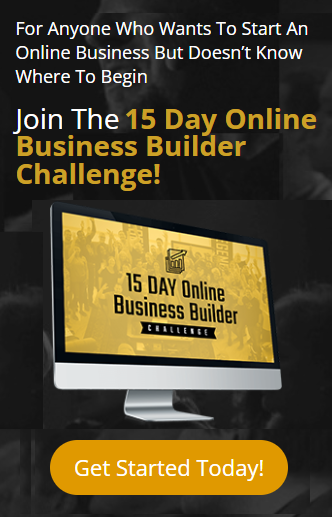1) Research your idea
If you’re itching to get started on your online business, start by doing a little research. What’s out there? How can you take something familiar and make it new?
Can you bring anything unique to a saturated marketplace? Who is your target audience and how can you reach them?
Start asking questions now so that once you begin putting together your site, all of these details will be clear.
It might feel like you’re wasting time when actually it’s just good groundwork. And as they say in baseball: Good pitching beats good hitting any day!
If people are coming back for more of what you have to offer, then don’t worry if someone else has done something similar—so what, make it better, tweak things to fit your voice, personality and style.
Don’t worry about getting lost in a sea of sameness; you should focus instead on giving them a product they won’t find anywhere else.
Once you’ve answered all those what if…? questions up front, it will become clear whether or not launching your idea makes sense.
Sure, success seems guaranteed at first blush but with such limited resources (time, money) why risk failure unnecessarily?
Take inventory of your skills and interests, consider potential problems before you hit roadblocks. Find out who buys products similar to yours, figure out what customers really want, put yourself in their shoes (as if you were shopping!).
Be prepared for surprises along the way. Study companies with successful websites and think about how they achieve their goals.
Seek advice from friends and family who run businesses or are entrepreneurs themselves; they might be able to give valuable insight into common pitfalls even though one size doesn’t fit all.
2) Brainstorm
In order to launch your business, you’ll need to know exactly what you want your business to do and sell. You may already have a solid plan of attack in mind—but it never hurts to get a second opinion.
If possible, brainstorm with other people who are interested in or knowledgeable about your field. They may see things that you can’t.
You may even find that others have started businesses similar to yours in different industries (which is totally fine; just be sure you differentiate yourself from them so no one else tries to take over).
Here are some great brainstorming tactics: Work on getting lots of ideas out there by encouraging free-flowing discussion. Encourage everyone involved to share opinions as they come up.
Don’t worry if you don’t agree at first. Just make sure everyone gets to state their case before moving on. Take notes during meetings, either physically or digitally, so everything is documented somewhere where all parties can access it later on in case questions arise at a later date.
Brainstorm alone if meeting face-to-face isn’t feasible for whatever reason—this way, you still get all of your notes recorded. Make detailed lists of pros and cons.
This will help you uncover any major flaws or omissions in your idea. Gather feedback from potential customers and clients. Ask them how they would use your product/service and tell them why they should use it too!
Also ask what features/ideas would convince them to pay for it (more than once!). Then ask if anything prevents those features/ideas from being viable solutions for their problems.
3) Develop a Plan
If you’re going to start a business from home, it’s important that you have a plan of action. It might be hard to believe, but starting and maintaining an online business is a lot of work.
When planning your new venture, ask yourself some key questions: Who are my customers? What are their pain points? How can I solve their problems?
Developing answers to these questions will help ensure you have all of your bases covered once you launch. Once you know who your ideal customer is, ask yourself how you’ll reach them—via email blasts, social media advertising, sponsored content or other channels.
Establishing a marketing strategy early on in your online business journey will set you up for success in building and nurturing relationships with potential clients down the road. Just remember that patience is key when launching your first online business.
Don’t expect overnight results! Doing things right takes time. Even Amazon took several years before turning a profit.
4) Pick your niche
Whatever you decide, it’s important that you pick a niche and specialize in that area. The more focused your business is, the easier it will be for you to reach your target audience, and speak to them in a way that resonates with them.
When searching for topics you’re passionate about, don’t be afraid of building around a narrow theme—as long as it resonates with your intended audience.
Your content may not appeal to everyone, but those who resonate with your message are likely to follow up on any recommendations or contact you directly.
You may even see some of these loyal readers become paying customers later on down the line.
And best of all? If you build something great, people won’t mind when you ask them for their hard-earned money because they know how much work went into developing your product or service!
So if there’s one key rule when it comes to writing an effective home business plan, it’s being deliberate. Put some thought into where you want your business to go.
Then take action by making specific goals and checking in regularly. Identify what challenges lie ahead so you can take action instead of letting fears hold you back from success.
A well thought out strategy will help give direction to your actions so you can achieve growth while staying true to what got you here in the first place!
5) Setup your website/blog
Before you can start earning money, you’ll need a website or personal blog. You’ll want a space where you can offer your services or products and connect with clients.
There are many platforms available (WordPress is most popular, but there are many others like Squarespace, Weebly and Wix) that make it easy to create a web presence for free.
If you want to learn more about building a website check out this tutorial: How to Build a Website Using WordPress in Ten Steps.
Your new website will serve as your portfolio and as an information hub that allows potential customers/clients to learn more about what you do and what value your business brings.
The next step is to create a professional profile on LinkedIn (you should also consider creating profiles on Facebook, Twitter and other social media sites).
Once you have your platform in place, work on improving search engine optimization.
Do keyword research in order to find out which phrases people are using when searching for products or services similar to yours; use those keywords across all of your marketing materials such as email campaigns, social media posts and press releases.
6) Pick affiliate programs to promote
Affiliate programs help business owners make money online without having to create their own products or services. Affiliate marketing is one of the most popular ways for new bloggers and entrepreneurs to generate revenue.
There are thousands of affiliate programs available today; picking just a few won’t be easy. When you’re starting out, it can be tempting to sign up for every affiliate program you find; after all, what do you have to lose?
You can quickly become overwhelmed with so many options, however. It’s important to remember that if you want your online business to succeed, you need to pick just a few affiliate programs that fit your website niche best.
This way, you can devote your attention to promoting those specific programs instead of spreading yourself too thin by trying to promote too many things at once.
This strategy will help boost sales because customers will feel as though they’re getting special treatment—as opposed to feeling like they’re getting lost in a crowd of other affiliates.
To determine which affiliate programs would work best on your site, ask yourself: What type of content would I be creating anyway?
7) Grow your email list
Once you’ve built a little credibility and have made your presence known online, start asking people if they’d like to receive updates (free of charge, of course) on your latest posts.
This is where readers become subscribers. Give them a few reasons why they should sign up—some incentive for giving you their email address.
And once you have their attention, deliver on your promises by delivering value with every post. Email newsletters don’t have to be time-consuming.
Just keep it short, sweet and relevant. Your readers will thank you for it!
Most startups are launched in garages or living rooms — not skyscrapers with posh conference rooms or huge workforces at their disposal.
You can get your business up and running even if you’re short on resources and expertise, says Joel Comm, author of The New Rules of Marketing & PR: How to Use Social Media, Online Video, Mobile Applications, News Releases, and Viral Marketing to Reach Buyers Directly.
But it’s important to take some steps before launching a business so that you don’t wind up haphazardly selling something.
One key step that every startup should take before they launch into business is assess your skills and experience in the field. Before starting any company, you need to know exactly what it is you’re capable of doing for yourself.
Are you good at accounting? If yes, then don’t hire an accountant.
And no, this won’t prevent all mistakes, but It’ll reduce your chances of failure… which will ensure future success!
8) Promote yourself on social media
By now, you’ve likely heard of promoting yourself on platforms like Facebook and Twitter. With over a billion users, each platform serves as a networking opportunity for professionals—especially those just starting out in their field.
In fact, if you’re not on these sites, it can look suspicious to potential employers that aren’t plugged into them (who do exist!). So make sure your profiles are up-to-date and actively maintained.
Join groups or find local events relevant to your industry. Make connections and build relationships; it’s a great way to network and keep tabs on happenings in your industry.
Above all else, take advantage of social media as another opportunity to promote yourself professionally. Whatever you write, know that every line is being read by someone who could be evaluating your work.
Don’t say anything online you wouldn’t say at a professional event—this includes photos, comments and even links to stories written by others but shared with your own commentary.
If something slips through (i.e., you send out an inappropriate tweet), apologize immediately and delete it before anyone sees it! Above all else, remember that every post is an opportunity to represent yourself as an expert in your field.
Even if people only see one side of you online, they should see a qualified professional—not a person just playing around on social media. It shows professionalism and takes some much-needed pressure off, especially if you’re meeting clients face-to-face.
In conclusion, starting an online business from home is a great way to make money while working from home. There are many things to consider when starting a business, but following these eight steps will help you get started. So, what are you waiting for? Get started today!
Do you want to learn how to launch a wildy profitable internet business in 15 days that generates consistent income, step-by-step? ➡️15 Day Business Challenge ⬅️







